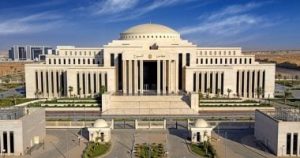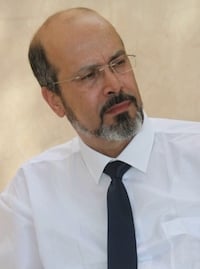The Intellectual Elevation and Advancement by Pakistani Thinker Malik Mansour
Digital brain algorithms challenge the greatest human and cosmic problems ever. It is no longer beyond the scope and horizons of this extraordinary artificial alternative to provide its creators with ethical and psychological incentives and choices to adapt to the transformations of the structures of ruptures and new formations of existential questions and their major expectations.
The Pakistani/British thinker and sociologist Malik Mansour views this delicate angle from the standpoint of working on ideal dimensions related to the world of spirituality, ethics, and human emotions, raising troubling questions about the challenges of the digital brain’s authority and its approaches within the rapidly evolving field of informatics and digital transformation technology. He seeks answers to strategic inquiries including:
- Will the digital brain be able to comprehend human ethics and emotions?
- Will full reliance on machines make humans weak and powerless?
- Will our social values and spiritual aspects be negatively affected?
Embracing artificial intelligence and the digital revolution positively can effectively contribute to building an intellectual and cultural unity to harness technology for humanity’s service. This depends on aligning scientific experience and future expectations with the latest technological trends across various fields of knowledge. It is not enough for this revolution to be limited to touching one sector without completing the expansion surge in parallel sectors. Education, health, and justice represent the foundations of the digital paradigm on which renaissance and development projects can be solidly built. These sectors continue to expand their roles and functions in other service, administrative, and foresight lives on a comprehensive scale, granting them effectiveness, continuity, and excellence.
Thinker Malik Mansour emphasizes the spiritual alongside the material dimension in the digitization system of culture and its various sectors, observing its historical and sociological effects and repercussions, and recalling its intellectual and educational dimensions in the spirit of the nation and its unlimited trusts, which have relied for fourteen centuries on their ethical superiority and rich constructions full of lessons and successes.
He believes our true responsibility in vision and effort depends on ensuring their use not only for material interests but also for serving humanity, reviving the spirit, and achieving collective good. This, Mansour asserts, cannot be achieved without spiritual fullness that makes living with chosen symbolic happiness a visionary vow stemming from deep dialogue with heritage and its capabilities enriched by diversity, momentum, and value fullness, and its openness to the sciences of the age and modernity as a methodology and behavior. He described this in one of his studies as “modern science harmonizing with spiritual values to create a future where knowledge is a transitional regulator of the love of excellence and the bet on technology serving humanity, creatively opening horizons of its distinction from all other beings.”
Alongside this interconnection, our thinker anticipates divergent future scenarios, decisively emphasizing the urgency of choosing a position within this critical hypothesis: a golden age or digital feudalism?
Considering the existence of transcendent economic and social transformations, Mansour regards general artificial intelligence simultaneously as an indispensable factor and capital. If this technology remains monopolized by global political and economic powers, it pushes key players to adopt what he called “Techno-Feudalism” to achieve ethical alternatives framed by “AI revenue distribution” backgrounds tied to ideological and political systems with precise existential risks.
Despite AI systems reaching the rapid self-improvement stage (Singularity), Mansour adds, they may surpass human understanding and control, with effects on the risk of human survival at varying rates, some scientists estimating it at 10%. However, using technologies with a global ethical orientation can solve some problems such as hunger, poverty, and the environment, provided effective foresight solutions are reached concerning armament, environment, brutal and monopolistic exploitation of natural resources, and their critical strategic problems, in addition to repairing the collapse of international relations subject to fragmentation, veto power, military force, and neo-colonialism under the banner of exploitation, excessive influence, and oppressive authoritarianism.
No one seems surprised by the economic, social, and relational transformations shaking our lifestyles amid all this chaos and global conflicts, where digital technologies, increasing in efficiency and speed according to Moore’s Law, invade all sectors of human activity across their technological generations. But the most important is understanding these new social transformations affecting individual and collective behaviors and human relations, interpreting them in a way that preserves the general orientations of the modern era and its organizational contexts.
One of the most important changes in the digital age renaissance, based on Malik Mansour’s foundations, is the ease of access to information faster and more efficiently than any other technological situation, constituting a true external memory that contributes, thanks to its simplicity and speed of access, to recycling the economy and better use of our resources. As a result, learning strategies and priorities of what is memorized are no longer the same. This raises the lingering question about the effort we exert to encode information so that it becomes available in seconds from electronic devices used, without affecting the aims of our shifts toward what we consider a strategic goal or a situation that needs to be managed in the way we want, not the way the digital mind wants.













Recommended for you
Talib Al-Rifai Chronicles Kuwaiti Art Heritage in "Doukhi.. Tasaseem Al-Saba"
Exhibition City Completes About 80% of Preparations for the Damascus International Fair Launch
Unified Admission Applications Start Tuesday with 640 Students to be Accepted in Medicine
Egypt Post: We Have Over 10 Million Customers in Savings Accounts and Offer Daily, Monthly, and Annual Returns
His Highness Sheikh Isa bin Salman bin Hamad Al Khalifa Receives the United States Ambassador to the Kingdom of Bahrain
Al-Jaghbeer: The Industrial Sector Leads Economic Growth